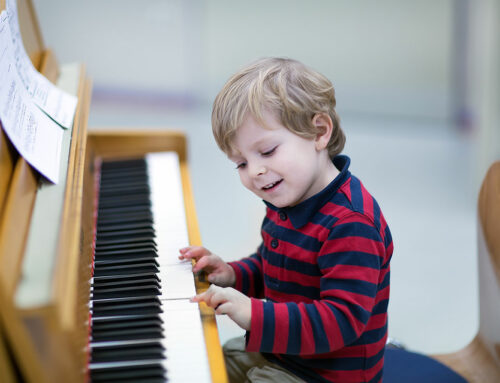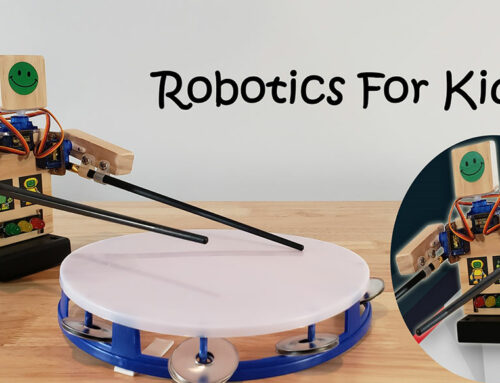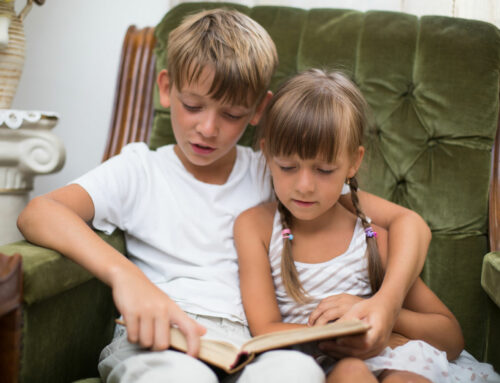By: Dawn Michelle Michals
You blinked and now here it is! You and your preschooler are ready to take the leap into your pre-K homeschool adventure.
By age four, most children are able to stick with an activity for 10 to 15 minutes, get dressed almost completely by themselves, and love a good rhyme.
Listed below are preschool competencies, developmental milestones, field trip ideas and more with everything you need to get started!
Pre-K homeschooling curriculum in Texas must include the five basic subjects of reading, spelling, grammar, mathematics, and good citizenship. Science and social studies are included below for you. Not in Texas? Check out state requirements for homeschooling in your state.
Read Ahead:
Pre-K Homeschool Suggested School Supplies
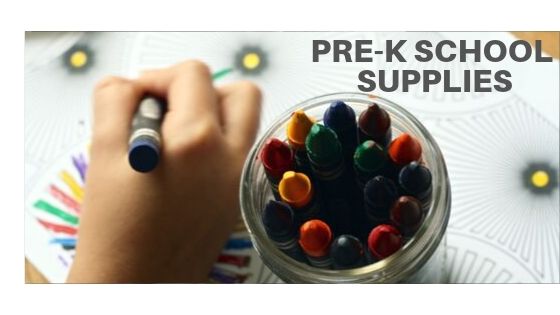
Find a longer post on this subject at Pre-K Pages.
- Crayons (thick or regular)
- Folders
- Washable Crayola thick classic markers
- Glue sticks
- Chubby beginner wood pencils
- Chubby pencil sharpener
- Paints (tempera and watercolor)
- Paintbrushes
- Paper for painting
- Construction paper
- White board
- Dry erase markers
- Ruler
- Paintbrushes
- Scissors (blunt tip)
- Globe
- Library card in your name as the child’s parent or guardian.
Preschool Homeschool Milestones by Subject
Pre-K Language Arts
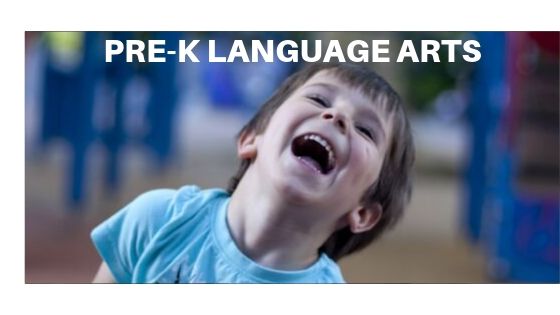
- Sings silly songs
- Makes up new, fun words
- Discovers and enjoys rhyming
- Follows simple, unrelated directions such as “Put up your toy and go get your shoes.”
- Uses different speech patterns depending on who he’s speaking with, such as speaking in shorter sentences to a younger sibling
- Pronounces most sounds correctly, but may still have trouble with s, w, and r sounds
- Begins to ask for the definition of unfamiliar words
- Make up stories and talks about what he’s thinking
- Argues, even though the argument might not be logical.
Visit Understood.org or more on four-year-old developmental milestones.
Pre-K Writing

- Tries to write, scribble or draw.
Pre-K Math
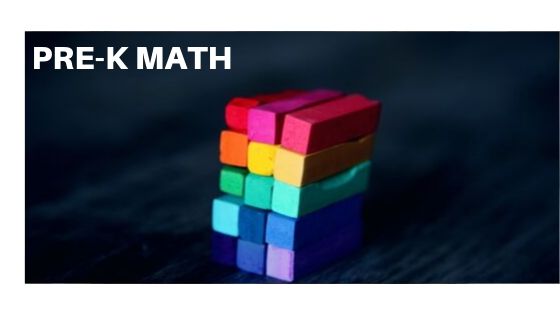
- Recognizes shapes while out in the world
- Begins to sort items by color, shape, size and purpose
- Compares and contrasts by using classifications such as height, weight and gender
- Able to count up to at least 20
- Accurately count items in a group
- Understands that numerals stand for number names, such as “1” is the same as “one”
- Able to put puzzles together
- Names some colors and some numbers
- Understands the idea of counting
- Starts to understand time
- Begins to understand cause and effect (If I drop my toy in the water, it will get wet).
Pre-K Science

- Understands the difference between living and non-living things
- Understands the five senses: sight, hearing, taste, touch and smell
- Able to name the basic concepts of weather such as clouds, rain, thunder and lightning.
Pre-K Good Citizenship

Being a good citizen not only means understanding your right to vote and the privileges of citizenship, but also respect for our planet, good stewardship and understanding the world around us. If you are in need of resources and lesson plans to fulfill this preschool homeschool requirement, consider joining THSC. We offer our “Lone Star Study” guide as a free lesson plan for good citizenship as a download for our members.
Here are a few ideas:
- Become involved in events and initiatives such as Capitol Days sponsored by THSC
- Attend rallies of causes you believe in as a family
- Introduce the voting and election process with fun games and activities such as this voting game found at PBSKids.org.
- Keep our state clean by picking up litter
- Save the planet! Learn what items can be recycled, where and how you recycle items in your town.
- For more ideas, check out our teaching good citizenship page.
3-4 Year Old Developmental Milestones

All children develop at different rates. However, certain skills are easily identified by age four. If you have concerns about your child’s development after reviewing this list, please discuss those with your healthcare provider.
3-4 Year Old Fine Motor Skills
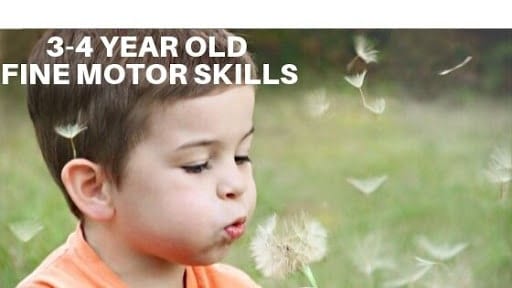
- Draws or copies basic shapes and crosses. This is a milestone known as “being able to cross the midline.”
- Writes some letters
- Begins to use scissors purposefully
- Able to stack a tower at least 10 blocks high
- String beads or O-shaped cereal to make necklaces
- Pinches and shapes clay or play-dough into recognizable objects
- Draws a person with two to four body parts.
3-4 Year Old Gross Motor Skills
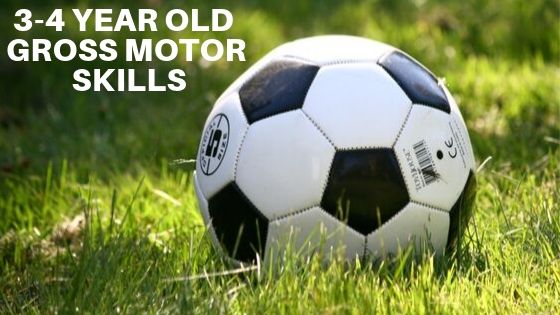
- Control movement more easily
- Able to start, stop, turn and go around obstacles while running
- Able to do log rolls, somersaults, skip and trot
- Can get dressed with minimal help while zippers, snaps, and buttons may still be a little difficult
- Throws and bounces a ball
- Jumps over objects and climb playground ladders
- Pedals and steers a tricycle or bike
- Hops and stands on one foot up to two seconds
- Catches a bounced ball most of the time
- Pours, cuts with supervision, and mashes own food
- Plays board or card games.
Pre-K Social and Emotional Skills

- Enjoys doing new things
- Is more and more creative with make-believe play
- Would rather play with other children than by himself
- Cooperates with other children
- Begins to play “Mom” and “Dad”
- Often unable to distinguish between what’s real and what’s make-believe
- Talks about what she likes and what she is interested in.
Pre-K Language and Communication

- Knows some basic rules of grammar, such as correctly using “he” and “she”
- Sings a song or says a poem from memory such as the “Itsy Bitsy Spider” or the “Wheels on the Bus”
- Remembers parts of a story and likes to tell stories
- Understands the idea of “same” and “different”
- Can say first and last name
- Tells you what she thinks is going to happen next in a book.
Preschool Milestones Checklists
10 Great Pre-K Books

- “Chicka Chicka Boom Boom” by Bill Martin Jr. and John Archambault, illustrated by Lois Ehlert. When all of the letters race up the coconut tree, will there be enough room for them to fit? This easy read gets you and your child rhyming while you learn the alphabet in perfect timing!
- “Possum Magic” by Mem Fox, illustrated by Julie Vivas. When little possum (Hush) wants to become invisible, Grandma Pos uses her bush magic to make it happen. The problem? How to turn her back! Read along as Grandma Pos and Hush journey through Australia to find the magical food that will make her visible again. You can also listen to “Possum Magic” read by the author for free.
- “The Big Honey Hunt” by Stanley and Janice Berenstain, edited by Dr. Seuss. This debut book of the Berenstain Bears fame follows the adventures of Father Bear and Small Bear as they look to replenish their family’s honey supply.
- “Michael Foreman’s Nursery Rhymes” Full of lullabies, favorite rhyming stories and tongue twisters, this book of over 200 popular nursery rhymes will delight new readers and will keep you saying “I remember this one!”
- “The Cat in the Hat” by Dr. Seuss. This first-ever Random House Beginner Book is a staple in reading nooks since 1957.
- “A Fish Out of Water” by Helen Palmer, illustrated by P.D. Eastman. What happens when you feed a goldfish too much? Find out in this charming book.
- Big Words for Little People by Jamie Lee Curtis, illustrated by Laura Cornell. “Big Words aren’t scary. They’re big fun to learn. I was taught once and now it’s your turn.” With words such as patience, considerate and respect, no word is too big or too small for your child to learn thanks to this This book is from the No. 1 New York Times best-selling team of author and illustrator.
- “The Book with No Pictures” by B.J. Novak. Want to guarantee a laugh every time you open a book? Check out this fun read.
- “What Do People Do All Day?” Find out in this book by acclaimed children’s author Richard Scarry about all of the professions of the animals in Busytown. And wow, are they busy!
- “Caps for Sale: A Tale of a Peddler, Some Monkeys and Their Monkey Business” by Esphyr Slobodkina. This book has been dubbed one of the most popular children’s books of all time.
Magazines offer a great way for children to learn core subjects and relationship skills. Here are a few great options:
- National Geographic Little Kids (ages three to six)
- High Five (ages two to six)
- Sports Illustrated Kids
10 Pre-K Field Trip Ideas
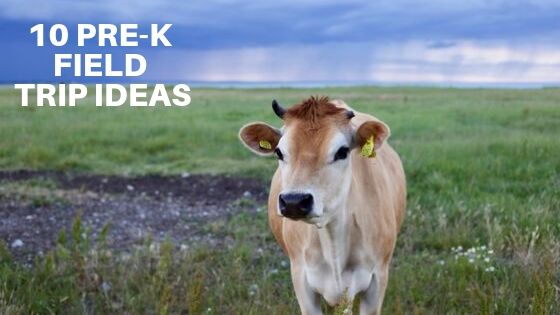
Nothing brings out joy in a child (and most adults) like a field trip! A field trip can be as simple as a walk around your neighborhood or a trip to your public library, or as extravagant as studying ecosystems at the Gulf of Mexico.
Be creative, and your next excursion can be an educational experience. Stumped? Many places and people are open to tours to educate youth. Just ask! Here are a few ideas to get you started.
- First Responder Appreciation: Police, fire and EMS stations are located throughout most cities. Locate the one closest to your house and make a connection. Tour a fire station, talk to a police officer or reach out to an emergency medical technician and find out what it truly means to be a first responder.
- Government: THSC Capitol Days are one-day, hands-on events that allow homeschooling families to fully participate in the state legislative process. These events give the opportunity to defend the rights of homeschool families in Texas, meet representatives and staff and actually help pass a law.
- Historical Sites: Why is your town important in the story of Texas? Check with a local historian or county historical society and find out! Headed to Austin? A free grade-specific tour is available at our Texas state capitol, which includes history, architecture and the legislative process. For more Texas road trip ideas and beyond, check out our roadschooling page!
- A trip to the farm: Open to the public each spring and fall, Sweet Berry Farm in Marble Falls, Texas, allows for hands-on activities such as picking strawberries, finding your way through the corn mazes and more. Check their website for opening dates and details.
- Play games in the car on the way: Whether it’s I Spy, 20 Questions, rhyming time or a family game of your own, the journey along the way can get those brain cells revved up and ready for your destination.
- Museums: Interactive museum exhibits are everywhere. From the Dr. Pepper Museum & Free Enterprise Institute in Waco (with science experiments and free tastings) to Legoland Discovery Center in Grapevine (fine tune those fine motor skills!), a plethora of museums dot our Lone Star State for any interest.
- Libraries: As a homeschooling family, the local library tends to be our home away from home. But how does a library work? Chat with the children’s or reference librarians to discover the inner workings of a place you see often (and tour it, if tours are available). Most libraries offer summer programs as well as events during spring break. Take advantage of free programs and educational opportunities held throughout the year.
- Theater/Music/Art: Grab a blanket and head to a free outdoor concert. Catch a performance of a local theater group. Stroll through a sculpture garden. Music, art and theater will open your child’s mind to other worlds and experiences.
- Get outside: Tour your backyard searching for insects and wildlife or go for a hike in one of our numerous state parks. Stargaze and discover constellations and planets. Our world is a big place to discover.
- Living history: What was it like to live hundreds of years ago? Scattered throughout our state are events and museums specializing in keeping history alive and active. The Texas Heritage Trails Program is the Texas Historical Commission’s award-winning heritage tourism initiative. Check out their website for a map of events to take you and your family back in time.
Pre-K Homeschool Curriculum (Free)
- HomeEducator.com: This site is brought to you by THSC and offers resources for parents, student learning and a free biweekly newsletter.
- Education.com: Worksheets, science experiments, crafts, and more!
- TeachersPayTeachers.com: Free and paid resources created for teachers by teachers.
- YoungExplorers.com: “Creative Educational Products”
- PBS Pre-K: Free videos, lesson plans and other digital resources for teaching preschool.
- Scholastic Pre-K Teachables: Free and subscription resources, printables and activities for pre-kindergarten.
- PreKinders: Science projects perfect for your preschooler!
We believe that a loving family home is the best environment for children and that homeschooling offers a high-quality education, which is why we provide practical information and encouragement to families. Don’t miss any of our content—subscribe to our free publications today! [click_to_tweet tweet=”Here’s your one-stop spot for all things pre-K homeschool! Preschool can be easy, free and an adventure for you and your child!” quote=”Pre-K Homeschool (Competencies and Activities + Comprehensive Guide)” theme=”style3″]
